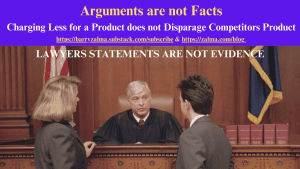Can I cancel my car insurance if I pay monthly?
Can I cancel my car insurance if I pay monthly?
Yes. While car insurance policies are usually taken out for 12 months and paid either up front or through monthly premiums, you can cancel at any time. Jul 31, 2020
How often should you change car insurance?
every six to 12 months While no set rule exists about when you should change your car insurance company, shopping around is highly recommended every six to 12 months. Moreover, car insurance companies change their rates often. Rates can increase and decrease over time depending on where you live and a variety of other factors.
Can I cancel my car insurance with an open claim?
Having an open claim doesn’t prevent you from canceling or switching your auto insurance policy. Though you may have to pay a cancellation fee, ending your coverage with one company and switching to another won’t impact the status of your previous claim.
Does Geico charge a cancellation fee?
If you want to cancel your policy, GEICO makes it easy with no cancellation fee. Just follow the steps below: Call (800) 841-1587 to speak with a friendly, licensed agent. If prompted to speak to the Interactive Voice Response (IVR), say “”cancel insurance policy”” and then “”auto.””
Do I have to cancel insurance if I sell car?
When you’re selling your car, you don’t necessarily have to cancel your car insurance and start all over again. You should find that you’re able to just change your car partway through your insurance and your insurer will just transfer the policy to your new car, it’s as simple as that. Jun 23, 2021
How do I get my insurance license in Texas?
How to Get Your Texas Insurance License Complete an Insurance Prelicensing Course. … Pass Your Texas Licensing Exam. … Get Fingerprinted. … Apply for a Texas Insurance License. … Plan to Complete Required Insurance Continuing Education (CE) Credits.
How hard is the Texas insurance exam?
While the Texas Insurance Exam isn’t regarded as the nation’s most difficult, it’s a comprehensive assessment that can punish unprepared test-takers. It also covers a wide range of issues that aren’t directly related to life insurance. Before you take the exam, you’ll need to know the ins and outs of: Health.
How much does it cost to get a Texas health insurance license?
$50 per license How much is the Texas insurance license fee? The Texas Department of Insurance charges $50 per license type (ex. General Lines-Property & Casualty or General Lines-Life, Accident & Health), or $150 for a temporary license.
How long does an insurance license last in Texas?
In Texas, insurance licenses expire every two years. Aug 26, 2021
How much does an insurance agent make?
How Much Does an Insurance Sales Agent Make? Insurance Sales Agents made a median salary of $52,180 in 2020. The best-paid 25 percent made $79,200 that year, while the lowest-paid 25 percent made $37,590.
How long does it take to get an insurance license?
It takes between two to eight weeks to get a health insurance license. To obtain a state-issued license requires a series of steps, including fingerprinting and a background check, as well as some course work and an exam. Nov 15, 2021
Which insurance license makes the most money?
While there are many kinds of insurance (ranging from auto insurance to health insurance), the most lucrative career in the insurance field is for those selling life insurance.
Is the Texas adjuster license exam hard?
Yes, the insurance adjuster exam test is pretty difficult. Although, Texas’ insurance exam is significantly easier than most states. This comprehensive exam covers types of insurance policies, provisions, options, exclusions, application completion, underwriting, and more.
How many times can you take the Texas insurance exam?
We want to help you get there, so we recommend that you: Step 1: A candidate who failed can schedule for a new exam within one day; there is no limit to the number of attempts a candidate can make on the same exam.
Can a felon sell insurance in Texas?
§§1033 and 1034, prohibits an individual who has ever been convicted of a state or federal felony involving dishonesty or breach of trust from engaging in the business of insurance unless the individual is specifically authorized to do so by an insurance regulatory official.





